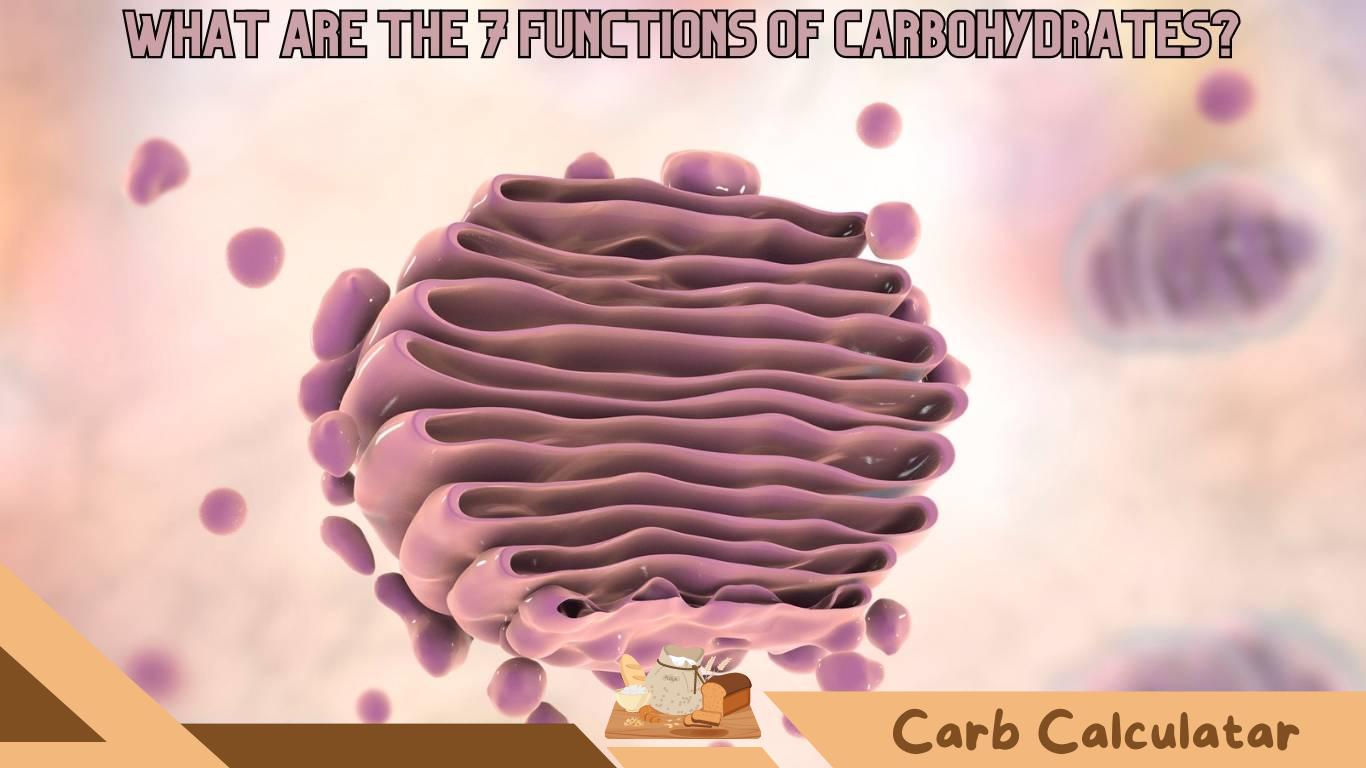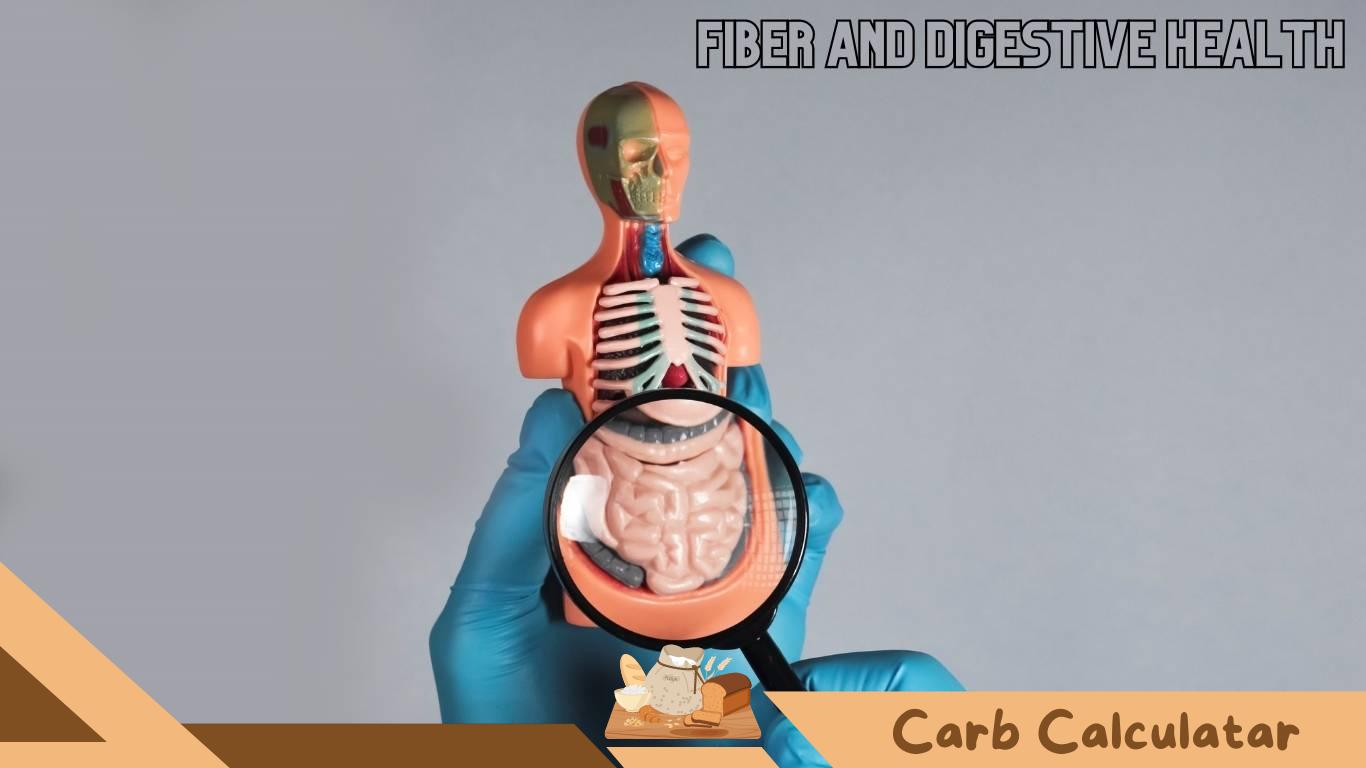What Are the 7 Functions of Carbohydrates?

Carbohydrates are necessary for a healthy diet. They are essential nutrients that we need to consume regularly. They are one of the primary sources of energy for the human body. Carbohydrates are found in various foods such as grains, fruits, vegetables, and legumes. They provide the body with glucose, the primary fuel for cellular activities.
Carbohydrates give us energy and are suitable for our body. Foods have vitamins, minerals, and fiber that help you stay healthy. Athletes and active people need carbohydrates for energy. This allows them to perform better.
Overview of the 7 Key Functions of Carbohydrates
Carbohydrates do more than give us energy. They serve many vital functions in the body. Knowing these purposes is essential to understand why carbs matter in our food. The following sections will delve into each part in detail.
1: Energy Source
Carbohydrates are the body’s preferred source of energy. When you eat food, it breaks down into glucose. Then, the glucose moves into cells to give you power for different body processes. Glucose is vital for the brain because it needs carbs to work correctly. Your body needs carbohydrates to function correctly. If it doesn’t get enough, it might use protein as an energy source instead, which can lead to muscle loss.
Role of Glucose in Cellular Respiration
Cells turn glucose into energy in the form of ATP through cellular respiration. Glucose is broken down by our body to produce power stored in ATP molecules. ATP molecules are critical for cells to do essential things like moving muscles, sending signals to nerves, and making proteins.
Importance of Maintaining Blood Sugar Levels
Maintaining stable blood sugar levels is crucial for overall health. Carbs like fiber-rich complex carbs release glucose into the bloodstream slowly. This helps avoid sudden swings in blood sugar. Your brain works best when your blood sugar level stays stable. This also keeps you from overeating and getting diabetes.
2: Energy Storage
Glycogen is a kind of carb that stores glucose in humans. It is predominantly stored in the liver and muscles. When there is too much glucose in your body, like after you eat, it becomes glycogen and is saved for later. Glycogen breaks down into glucose to meet the body’s energy needs.
Role of Glycogen in Providing Energy during Fasting or Physical Activity
When you fast or do intense physical activity, your body uses glucose for energy. This is when glycogen, an energy source that’s easy to access, comes into play. Glycogen stored in your body gets turned into glucose when you need energy. This process is called glycogenolysis, and it helps you function normally.
The connection between Glycogen and Liver Health
The liver plays a crucial role in glycogen storage and regulation. It acts as a reservoir for glycogen, maintaining stable blood glucose levels. When blood sugar goes down, the liver makes more glucose from glycogen to stop low blood sugar. The liver has two jobs – making and breaking down glycogen. This helps keep a balance between storing and using it. Your body needs a healthy liver to manage energy and glycogen properly.
3: Structural Support
Carbohydrates help cells and tissues stay strong and give us energy too. They help make glycoproteins and glycolipids, which are in cell walls. Carbohydrates structures do many things in cells. They help keep things stable, let cells talk to each other, and help with different jobs in the cell.
Carbohydrates in Maintaining the Integrity of Cell Membranes
Glycoproteins and glycolipids are carbs that help keep cell membranes fluid and let stuff in and out. Recognition markers are used by cells to identify and communicate with each other. Cell membrane carbohydrates help the immune system recognize and fight against foreign invaders.
Role of Carbohydrates in the Formation of Connective Tissues
Carbohydrates are essential for our body, especially a kind called GAGs. They make up things like cartilage and tendons. GAGs help tissues stay strong and flexible when they face physical strain. In connective tissues, carbs called proteoglycans help keep them moist. This keeps them lubricated as well. You may also like to read: How Much Fiber is Good for Gut Health?
Carbohydrates are essential for storing energy in the body. Glycogen is the primary storage molecule. Proteins give cells and tissues support and make cell membranes strong. They also help create connective tissues. Carbohydrates do many things to keep us healthy. Understanding these things helps us see how important they are.
4: Biological Recognition
Carbohydrates are essential for recognizing cells because they act as markers on the surface. Carbohydrate-based tags, called glycoproteins or glycolipids, help cells identify and communicate with each other. Molecules help cells know what’s part of their body and what’s not. This lets them stick together, fight disease, and send messages to each other.
Carbohydrates in Immune Responses and Cell Communication
Carbohydrates on cell surfaces are involved in immune responses and cell communication. These signals help immune cells find and fight bad stuff in your body. Carbohydrates help cells communicate by making it easier for cells to stick together and move around. They also help with processes like sending signals between cells.
Examples of Carbohydrates Involved in Blood Type Determination
Carbohydrates can affect how our bodies recognize things, like blood type. Identifying blood type is an excellent example of this. Antigens are on the surface of red blood cells. These antigens determine blood types, such as A, B, AB, or O. Blood transfusions require that the blood cells have specific carb structures. This is important to make sure they are accepted.

5: Fiber and Digestive Health
Dietary fiber is a carbohydrate that human enzymes cannot digest. Plants have things like cellulose, hemicellulose, and pectin in them. Although fiber is indigestible, it plays a crucial role in maintaining digestive health.
Benefits of Fiber in Promoting Healthy Digestion
Fiber promotes healthy digestion and prevents constipation. Adding more fiber to your diet helps with digestion and prevents constipation. Fiber also acts as a prebiotic, providing nourishment for beneficial gut bacteria. Bacteria break down the fiber in our gut. This helps us digest food better and keeps our hearts healthy.
The connection between Fiber Intake and Reduced Risk of Certain Diseases
According to research, eating more fiber can lower the risk of some diseases. Eating enough fiber can help you avoid heart problems and diabetes. It may even reduce your chances of getting certain cancers like colon cancer. Foods with fiber are good for you in many ways. They can help stabilize your blood sugar, make you feel full, and help you manage your weight. This can all help you stay healthy and avoid getting sick.
6: Flavor and Sweetness
Carbohydrates make food taste good in many different ways. When you eat carbs, they break down and release flavors that affect your taste. Carbs like sugars and starches improve the taste and texture of food, making it tastier.
Perception of Sweetness and Its Impact on Food Preferences
The perception of sweetness is closely tied to carbohydrates, specifically sugars. When sugar touches taste receptors on your tongue, you feel a pleasing sweetness. This perception of sweetness can influence food preferences and consumption patterns. Some people like sweet things, so they pick sweet-tasting foods more often.
Relationship between Carbohydrates and the Food Industry
Carbohydrates have a significant impact on the food industry. These things are often used in processed and packaged foods to make them taste, feel, and last longer. Foods often have sugars, syrups, and starches added to them. This makes them tastier and thicker or gives them a particular texture. The food industry uses carbs to make food taste better and work right.
7: Plant Structure and Photosynthesis
Carbohydrates play a crucial role in providing structural support in plants. Plant cells have complex carbohydrates in them, like cellulose. Cellulose is the central part of plant cell walls. Plants need cellulose to stay strong and keep their shape. Cellulose makes plant cells rigid, so they give support to the whole plant.
Photosynthesis and Carbohydrate Production in Plants
Plants change sunlight, water, and air into sugar and oxygen. This process is called photosynthesis. Glucose, produced through photosynthesis, is the primary carbohydrate plants have. Plants use glucose for energy, growth, and storage.
Importance of Carbohydrates in Plant Growth and Development
Carbohydrates are vital for plant growth and development. Proteins, nucleic acids, and other essential compounds need energy to be created. This energy comes from metabolic processes. Plants keep extra energy in the form of carbs like starch. This is because carbs are a way to save energy in plants. Plants use stored carbs when there’s less sun or when they need extra power. This helps them grow, make babies, and stay alive.
Carbohydrates make food taste good, and sugars are what make things sweet. The food industry uses carbs to make food taste better. Plants use carbs for structure and energy. They make cellulose and help with photosynthesis and growth. Carbohydrates have many jobs. They help us pick what to eat and help plants grow. It’s essential to know these functions.
Conclusion:
Carbohydrates have many functions in our bodies and plants. They are diverse compounds. This article has explored the seven critical parts of carbohydrates in detail. Scientists have found that plants are beneficial. They give us energy, help our bodies work correctly, taste good, and even give us the air we breathe.
Carbohydrates are essential for a healthy body. Understanding what they do can help us stay healthy. Carbohydrates are necessary for our body. They give us energy and help with digestion and immunity. A balanced diet includes carbohydrates. Foods like grains, fruits, veggies, and legumes have them. Eating them is suitable for a healthy diet with variety.
FAQs:
Q1: What are the primary sources of carbohydrates in the human diet?
The food we eat has carbs that give us energy. Some carb sources are grains (like rice or oats), fruits, veggies, beans, and dairy. Sugars can come from fruits or processed foods and add to your carb intake.
Q2: Are carbohydrates bad for you?
A2: Carbohydrates are not inherently bad for you. They are essential macronutrients and serve important functions in the body. It’s vital to choose healthy carbs from whole, unprocessed foods. Look for complex carbs and high-fiber options while limiting added sugars.
Q3: How much dietary fiber should I consume daily?
The fiber you need daily depends on age, gender, and personal needs. As a general guideline, adults should aim for 25 to 30 grams of fiber daily. To improve your digestion, it’s a good idea to eat more fiber gradually. Try to include different types of foods that are high in fiber.
Q4: Are carbohydrates only found in plant-based foods?
Plant-based foods contain carbohydrates, but they’re not the only source. Animal products like milk and yogurt have lactose, a natural sugar and carb. Plant-based foods have more carbs, like fiber, than animal-based foods.
Q5: Can a low-carbohydrate diet be healthy?
Low-carb diets work for some people and health issues like diabetes or weight loss. Be careful with low-carb diets, and ensure you still get all the necessary nutrients. Talking to a doctor or nutritionist about the best way to eat for your body is a good idea.




